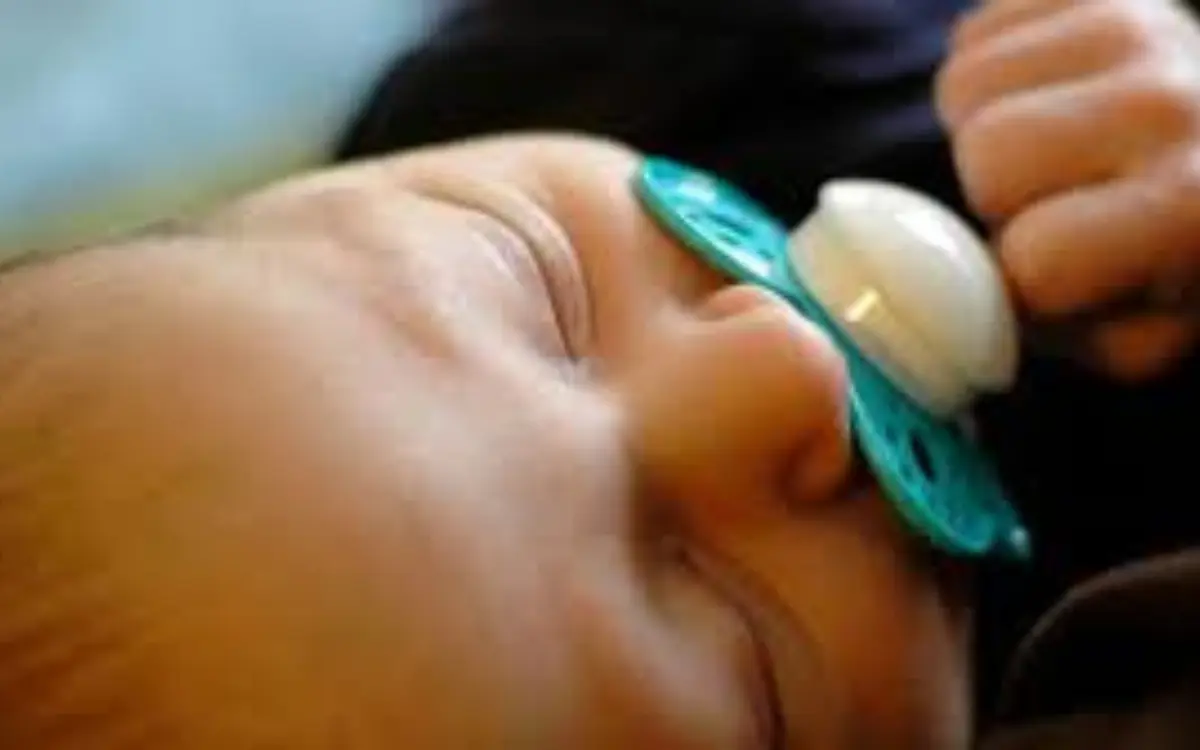UK (Parliament Politics Magazine) – Laboratory tests revealed BPA in some baby dummies from major brands, despite “BPA-free” labels, posing risks to children’s development and health.
As reported by The Guardian, three major European baby dummies have tested positive for a chemical linked to obesity, developmental issues, and cancer.
Which baby dummies contain BPA despite the “BPA-free” label?
According to dTest, a Czech consumer watchdog, pacifiers made by Philips of the Netherlands, Curaprox from Switzerland, and France’s Sophie la Girafe were found to contain the chemical bisphenol A (BPA). After additional tests, Philips confirmed no BPA, while Sophie la Girafe said the detected traces were minimal.
Each of the three baby soothers was sold as “BPA-free” or made from “natural rubber.”
Bisphenol A, a synthetic chemical used in plastic production, mimics the female hormone oestrogen in humans and animals.
A total of 21 baby pacifiers were purchased for testing: 19 from stores across the Czech Republic, Slovenia, and Hungary, and two from the online marketplace Temu, produced by Foshan City Saidah.
Researchers simulated a baby’s mouth by soaking each dummy in artificial saliva at 37°C (98.6°F) for 30 minutes, then tested for bisphenol levels.
BPA was detected in four dummies, with the Curaprox Baby Grow With Love showing the highest amount. Despite being labeled “BPA-free,” the Curaprox dummy contained 19 µg/kg, exceeding the EU’s 10 µg/kg safety limit.
Sophie la Girafe’s “natural rubber” pacifier showed the second-highest BPA level at 3 µg/kg in lab tests.
Lab tests showed the Philips Avent Ultra Air soother contained 2 µg/kg BPA, while a Temu-sourced pacifier made by Foshan also showed traces.
Hana Hoffmannová, editor-in-chief of dTest magazine, said,
“Pacifiers are often one of the first items parents buy, and they do not expect to be exposing their children to hormone-disrupting chemicals from day one.”
What did Chloe Topping say about BPA risks in baby dummies?
Chloe Topping, a campaigner with Chem Trust not linked to the research, stated,
“The health effects of BPA are extensive: breast cancer, prostate cancer, endometriosis, heart disease, obesity, diabetes, altered immune system, effects on reproduction, brain development and behaviour, including behaviour in children.”
She said young children are highly vulnerable since their organs are still developing, and BPA exposure is linked to lower sperm counts and early puberty.
Ms Topping added,
“And the thing about endocrine-disrupting chemicals … is that they can act at very, very low concentrations.”
How did baby soother makers respond to BPA findings?
The Curaprox maker, Curaden, said the finding was unexpected and confirmed it through internal testing.
The spokesperson added,
“Out of an abundance of caution and in line with our commitment to quality, Curaden immediately decided to proactively remove the soothers [from affected batches] from the market and to offer refunds to all affected customers.”
A spokesperson for Vulli, maker of Sophie la Girafe, rejected the claim, saying no pacifiers have been sold recently, despite images of babies using them still online.
They added,
“In any case, all our products are subject to exclusive [BPA] testing before being marketed, carried out by an accredited laboratory [SGS].”
The Vulli spokesperson added,
“As a reminder, the regulatory limit for [BPA] migration is set at 0.04 mg/kg, and the laboratory’s detection limit is 0.01 mg/kg. The value mentioned in the article (3µg/kg, or 0.003 mg/kg) is well below this detection limit and therefore insignificant.”
Philips said product safety is their priority, meeting all legal requirements and following strict regulations and standards.
A spokesperson stated,
“We want to reassure our soother ranges are BPA-free throughout the entire manufacturing process, and we regularly conduct randomized tests and other quality controls to meet regulatory requirements to check and confirm this.”
They added,
“Following news about the Philips Avent SCF085/60 soother, we have checked our results and conducted further tests with DEKRA, the world’s largest independent, testing, inspection and certification expert organization. These tests also confirm no detectable BPA across our soother ranges, including the sample tested, and validated that they are BPA-free.”
Philips and Sophie la Girafe products are still available in Britain, but Curaprox and Foshan City Saidah items have been removed.
What did Karolína Brabcová say about BPA rules for pacifiers?
Karolína Brabcová of Arnika, a Czech campaign group, stated,
“It is illogical that bisphenols are banned in baby bottles but not in pacifiers, which babies use more intensively and in some cases for long years.”
She added,
“We are seeing a lack of stringent regulation and it is failing consumers.”
What are the EU laws on BPA in baby bottles?
EU standards for BPA in baby dummies remain unclear. The EN 1400 limit allows a maximum of 10µg/l. However, the European Toy Safety Directive sets a higher 40µg/l threshold.
The EU has banned BPA in baby bottles since 2011, expanding the rules in 2018 to include food containers for young children.
What is the purpose of using BPA in baby products?
BPA is primarily used to manufacture strong, shatter-resistant polycarbonate plastics. This property made it a historical material of choice for clear, durable items like baby bottles.
The chemical also serves as a protective lining in food and formula containers. It acts as a barrier to prevent corrosion and maintain shelf stability.


